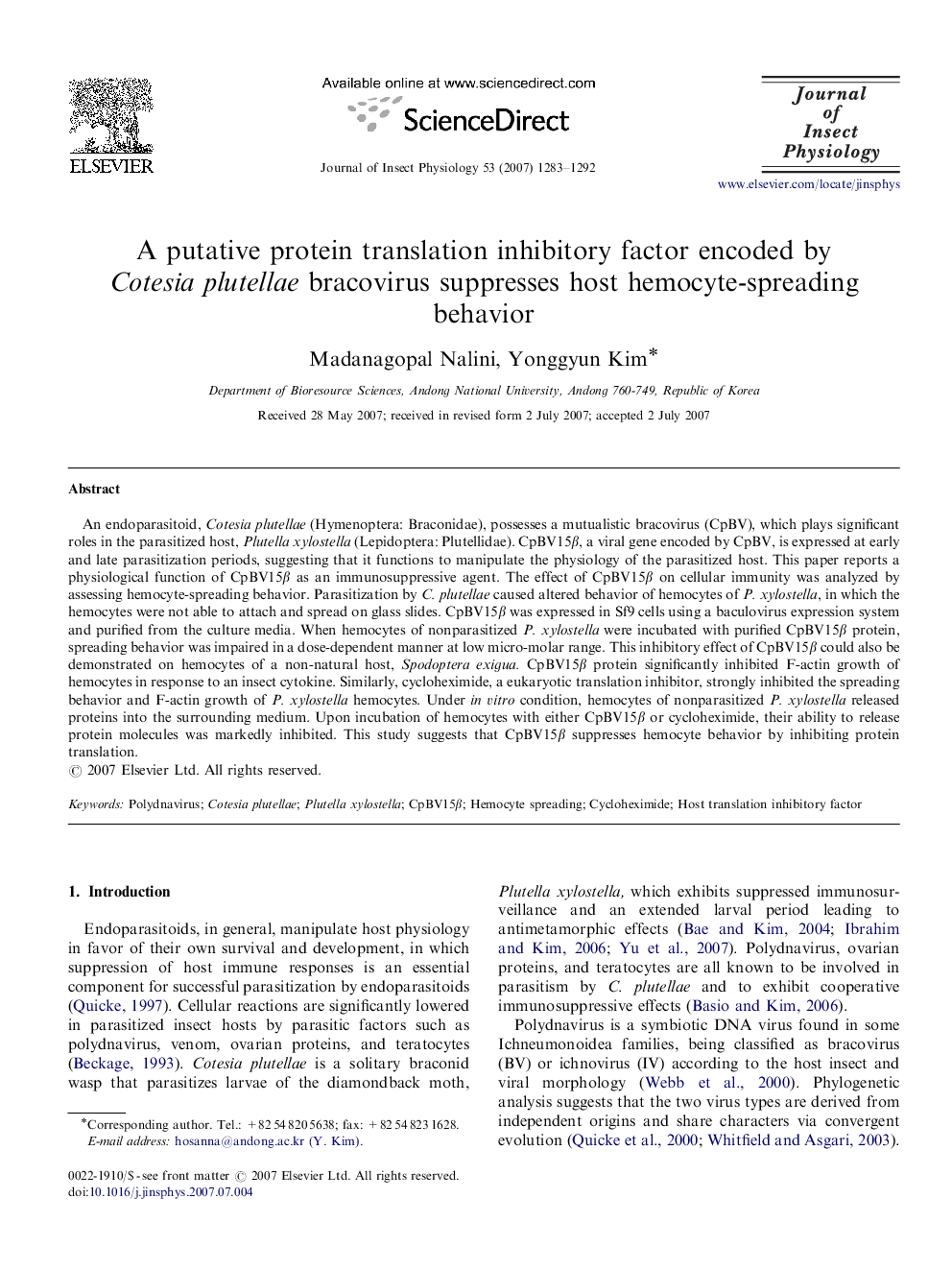| Article ID | Journal | Published Year | Pages | File Type |
|---|---|---|---|---|
| 2841520 | Journal of Insect Physiology | 2007 | 10 Pages |
An endoparasitoid, Cotesia plutellae (Hymenoptera: Braconidae), possesses a mutualistic bracovirus (CpBV), which plays significant roles in the parasitized host, Plutella xylostella (Lepidoptera: Plutellidae). CpBV15β, a viral gene encoded by CpBV, is expressed at early and late parasitization periods, suggesting that it functions to manipulate the physiology of the parasitized host. This paper reports a physiological function of CpBV15β as an immunosuppressive agent. The effect of CpBV15β on cellular immunity was analyzed by assessing hemocyte-spreading behavior. Parasitization by C. plutellae caused altered behavior of hemocytes of P. xylostella, in which the hemocytes were not able to attach and spread on glass slides. CpBV15β was expressed in Sf9 cells using a baculovirus expression system and purified from the culture media. When hemocytes of nonparasitized P. xylostella were incubated with purified CpBV15β protein, spreading behavior was impaired in a dose-dependent manner at low micro-molar range. This inhibitory effect of CpBV15β could also be demonstrated on hemocytes of a non-natural host, Spodoptera exigua. CpBV15β protein significantly inhibited F-actin growth of hemocytes in response to an insect cytokine. Similarly, cycloheximide, a eukaryotic translation inhibitor, strongly inhibited the spreading behavior and F-actin growth of P. xylostella hemocytes. Under in vitro condition, hemocytes of nonparasitized P. xylostella released proteins into the surrounding medium. Upon incubation of hemocytes with either CpBV15β or cycloheximide, their ability to release protein molecules was markedly inhibited. This study suggests that CpBV15β suppresses hemocyte behavior by inhibiting protein translation.
